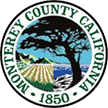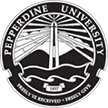CIT offers Makassar interpreters and translators with legal, medical and specialty experience, including criminal and civil matters, employee meetings, engineering, patent cases, labor disputes, immigration and more.
Although based in Los Angeles, CIT offers comprehensive Makassar language services including interpretation, translation and transcription, 24 hours a day, 7 days a week, worldwide. Our interpreters and translators are native speakers who have been screened, certified, have provided credentials, field tested, and kept up to date with developments in both English and the Makassar language through means such as lectures, conferences, and travel.
CIT’s Makassar language interpreters and translators possess in-depth knowledge of the Makassar language, as well as of the culture and history of the Makassar people, allowing them to provide informed and complete interpretation and translation.
The Makassar language, spoken by approximately 2.1 million people, is native to Indonesia. In Indonesia, it is particular to the South Sulawesi region. Makassar is part of the Austronesian language family. The language is closely related to Buginese. In the Makassar language, there are three dialects: Gowa, Maros-Pangkep and Jeneponto.
Makassar is the capital of the Indonesian province of South Sulawesi and is about 2,473 square kilometers. As of 2013, 1.6 million people lived in the 15 districts of Makassar. The 15 districts are: Biringkanaya, Bontoala, Sangkarang Islands, Makassar, Mamajang, Manggala, Mariso, Panakkukang, Rappocini, Tallo, Tamalanrea, Tamalate, Ujung Pandang, Land Edge, and Wajo.
Historically, Makassar has been known for its ports and its spice trading. There had always been struggles between the foreign powers and the natives over who would control the trade, considering how much money the trade was bringing in. The history of Makassar has been recorded and dates back to the 1200s. In 1945, Makassar declared its independence from the Netherlands. It became the capital of the State of East Indonesia. Because the country grew so much after its independence, many historical sites were destroyed in order to make room for more development. Today, one must dig deep to find the few historical landmarks that remain.
The main economy of Makassar is its ports, indicating domestic and international shipping. It is particularly known for docking pinisi boats, the last of their kind to ship long distances in trade. Because it is the biggest city in Sulawesi Island, a lot of its economy is based on services, such as restaurants and hotels. After that in popularity comes transportation and communication. The Makassar transportation system is called pete-pete, which are light blue mini busses that carry passengers. The city of Makassar is governed by a major.
Makassar is a very warm area. It is categorized as having a tropical monsoon climate. There are five universities. They are: State University of Makassar, Hasanuddin University, Alauddin Islamic State University, Universitas Muhammadiyah Makassar and Universitas Muslim Indonesia. As of 2007, all schoolgirls in Makassar must wear skirts below their knees.
Makassar is known for its traditional foods. Its most famous is Coto Makasar, a stew made of nuts, spices, beef brain, tongue and intestine. Another famous food is pisang epe, which is a pressed banana that is grilled and covered with palm sugar.


No matter what your needs may be, we can and are ready to assist you now. We have translators and interpreters standing by 24/7.

CIT's interpreter is such a rockstar, and it’s so great to have him as a lead interpreter for our Board meetings. About Our Interpreters 
Thank you for always being able to handle emergency interpreting assignments with ease. About Urgent Requests 
Thank you for always being able to handle emergency interpreting assignments with ease. About Urgent Requests 
Your translation rates are more competitive than other language service providers I used in the past. About Pricing 

Professionalism matters at CIT. We respond to request inside 24 hours.







